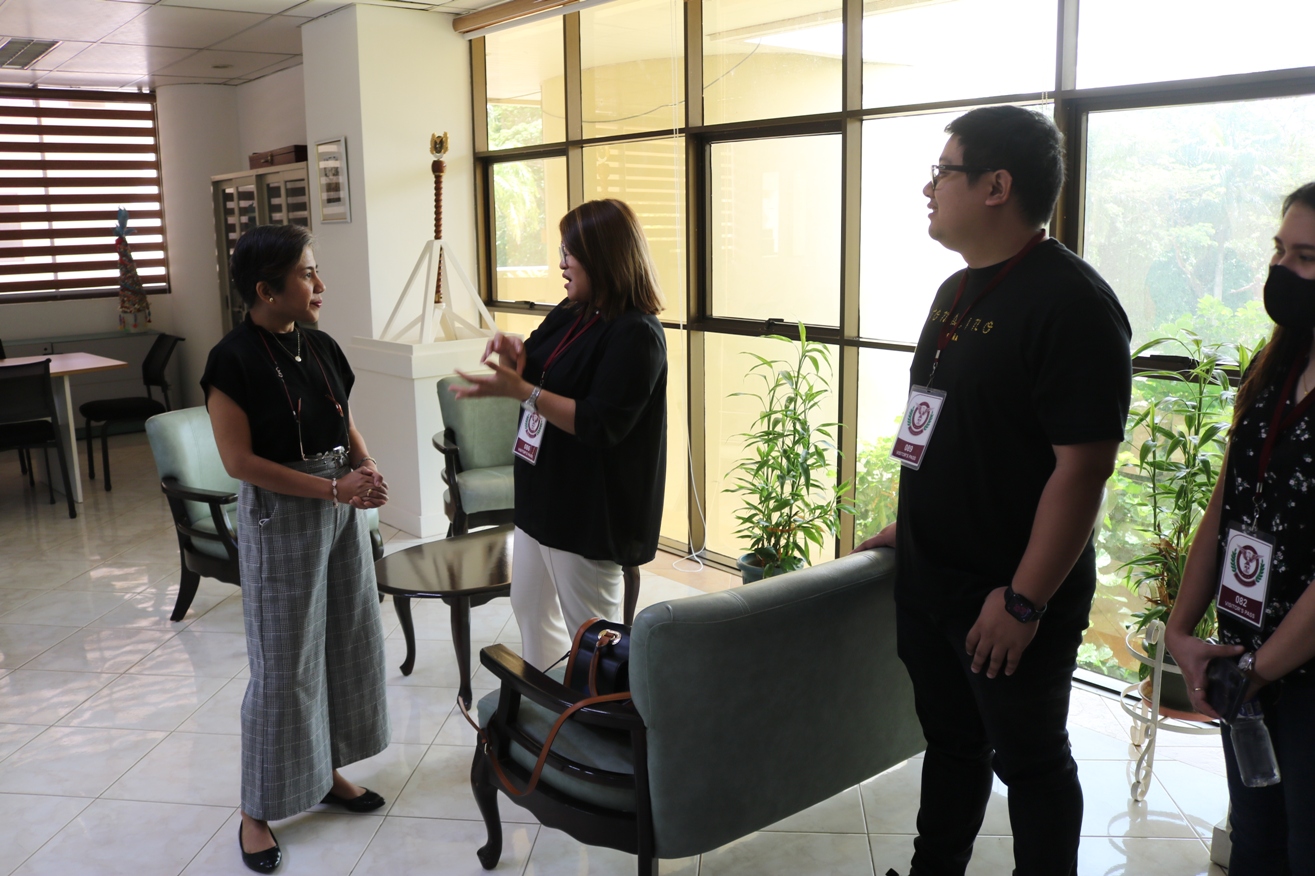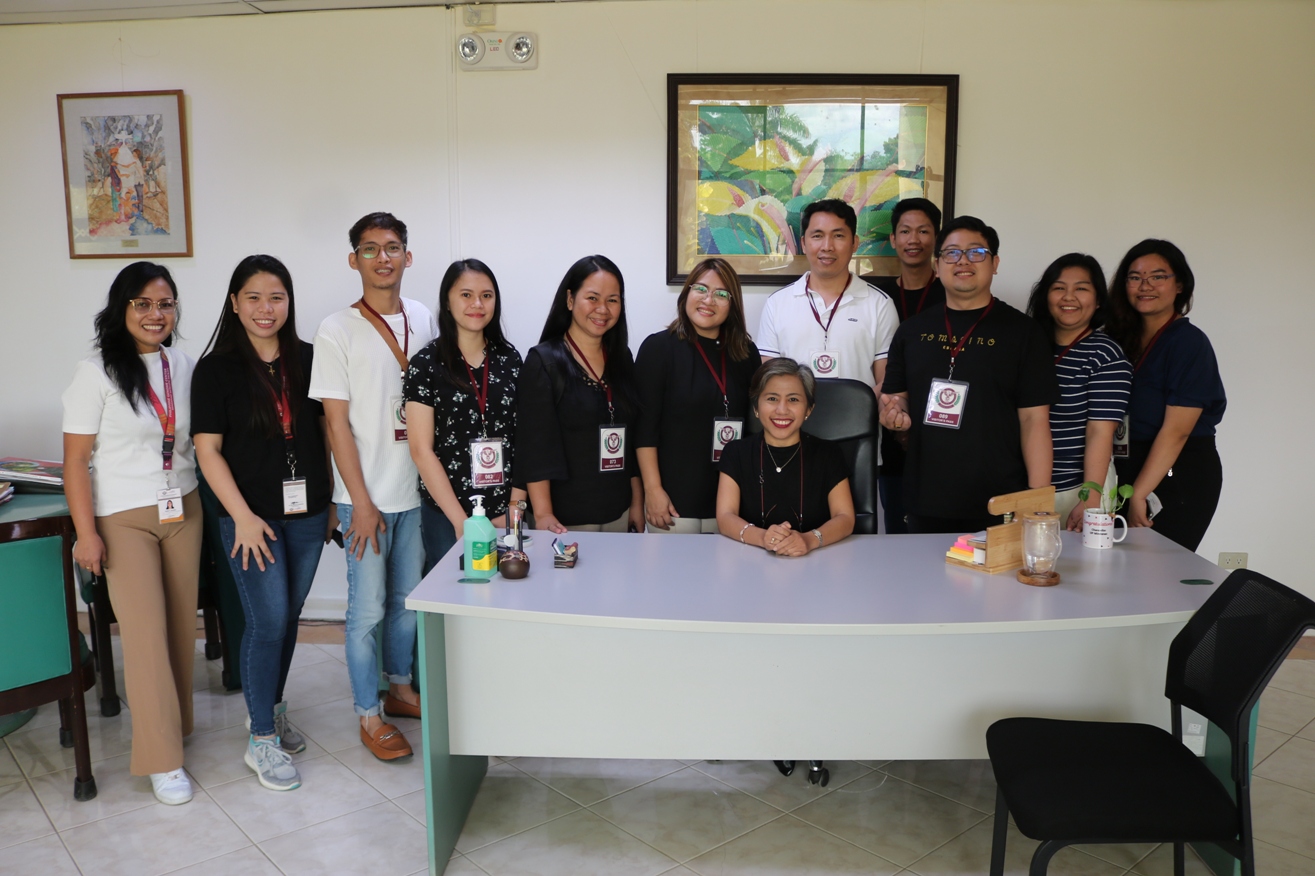Authors Cruz and Bengan in Mindanao Book Fair
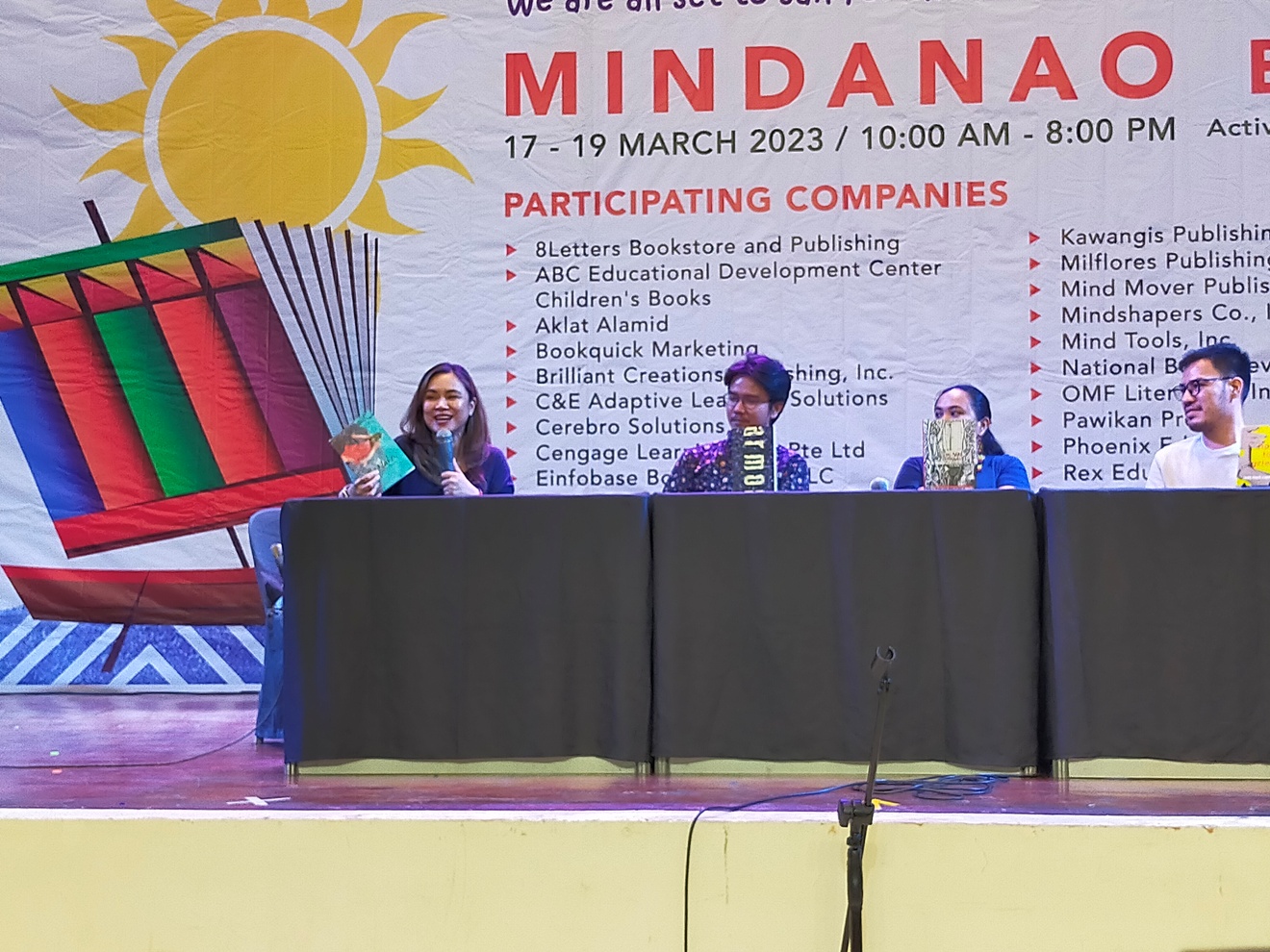
Prof. Jhoanna Lynn Cruz of the Department of Humanities (most left, in the photo above) led a panel discussion entitled "Mindanao Fictions," at the Mindanao Book Fair on March 19, 2023, in her capacity as president of the Davao Writers Guild. Associate Prof. John Bengan (second from left), also of the Humanities department and author of "Armor," a collection of short stories, was joined by Elizabeth Joy Serrano-Quijano, author of "Dili Pwede Mogawas," a short story collection, and Jade Mark Capiñanes, author of "How to Grieve," prose collection. Prof. Cruz and the panelists discussed how their stories engage with re/writing Mindanao to help define Mindanaoan and/or Mindanawon literature. The panel was hosted by independent publisher Everything's Fine. The authors also accommodated book-signing requests. The public panel discussion addresses freedom of speech, social exclusion experiences, gender equality, and psychological well-being, among other ideas.
View the discussion here: https://youtu.be/GGKRbg9tGeY

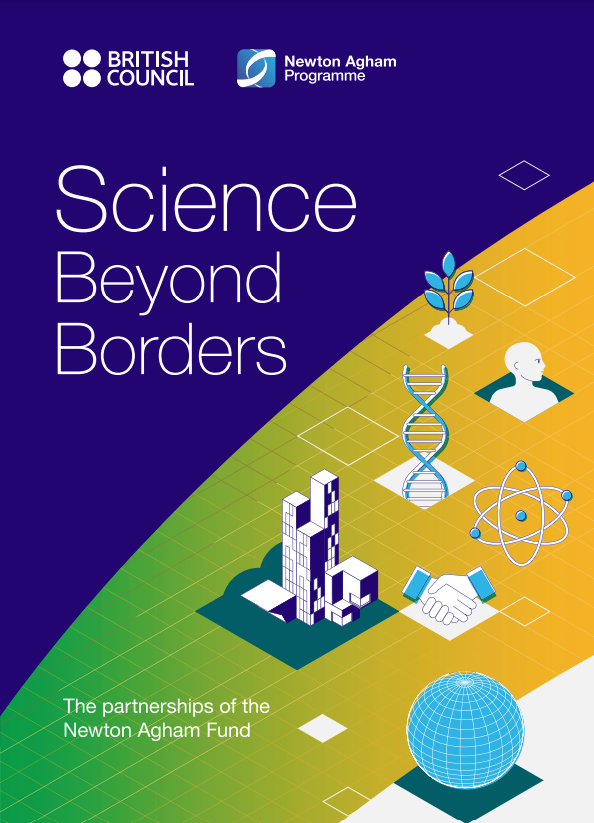
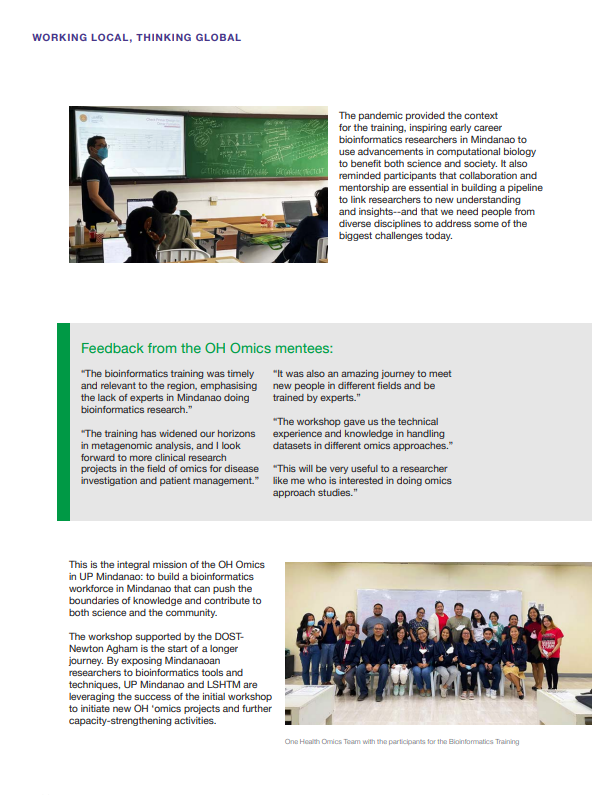
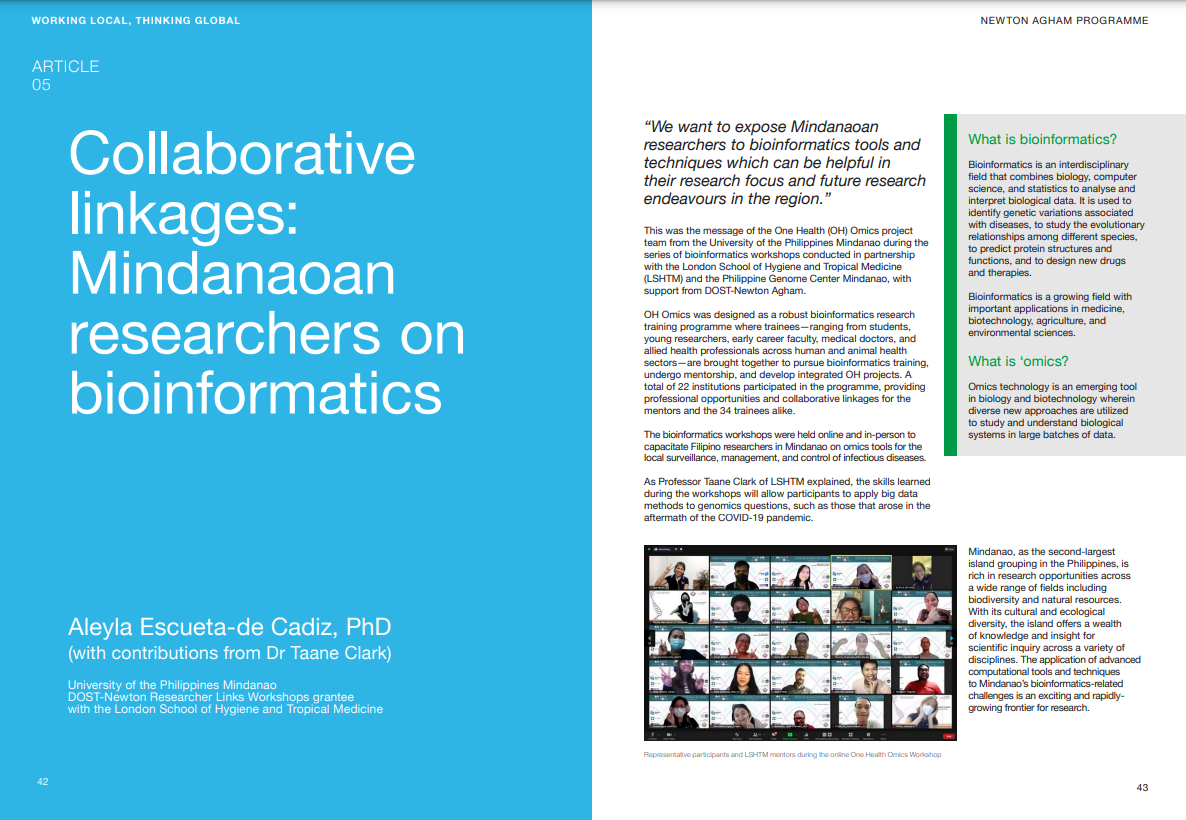
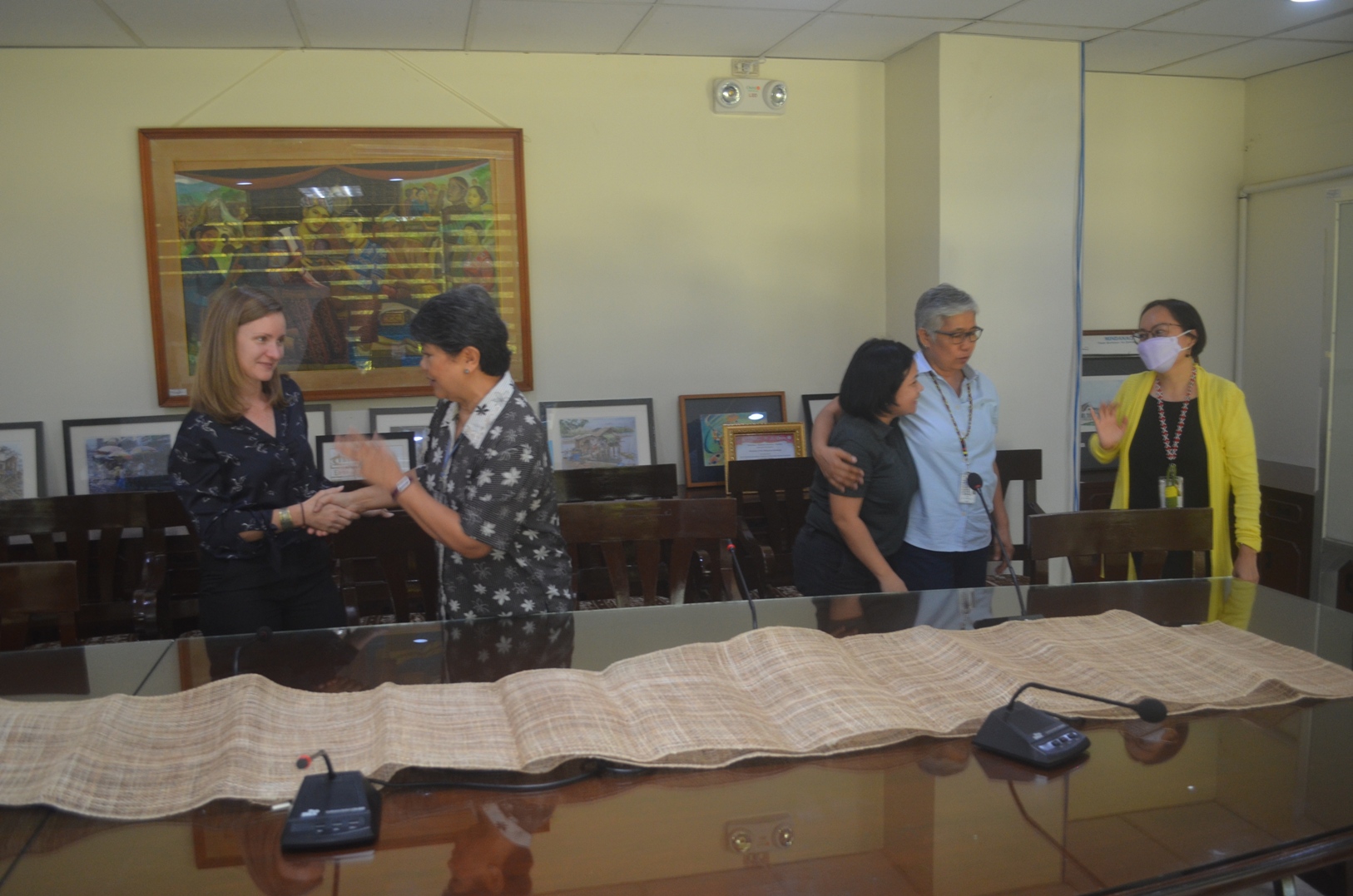
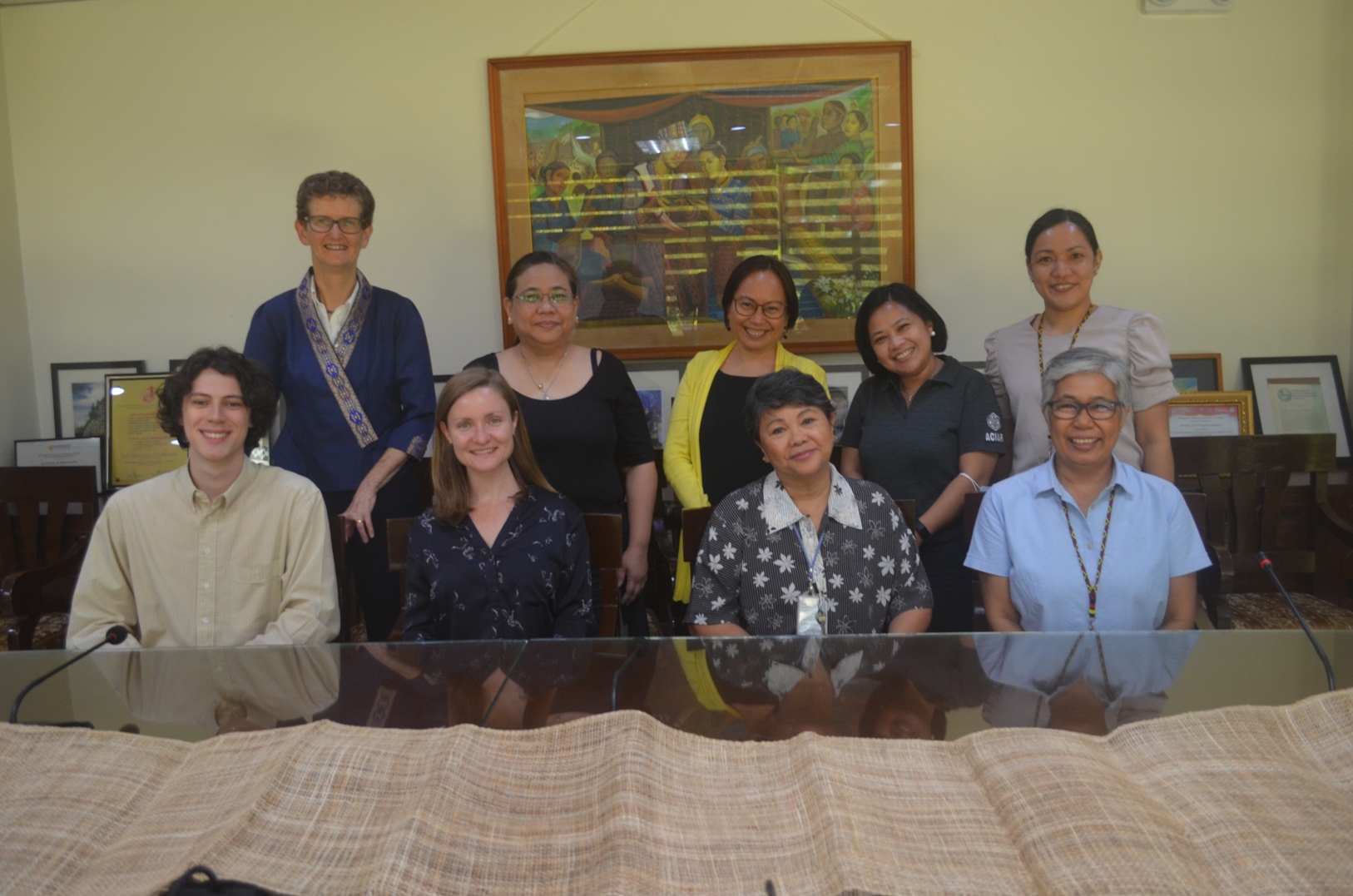
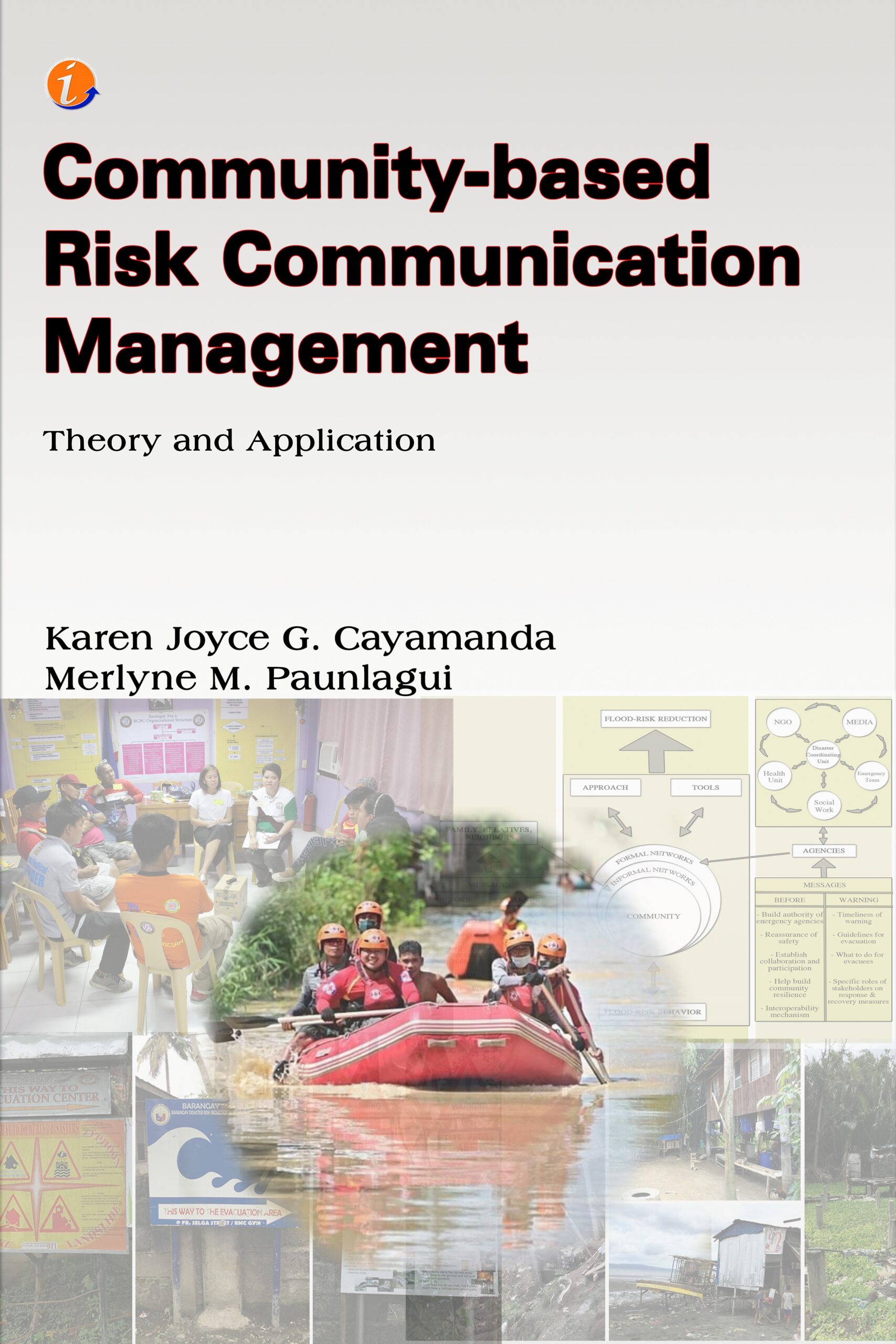 Reprinted from
Reprinted from 